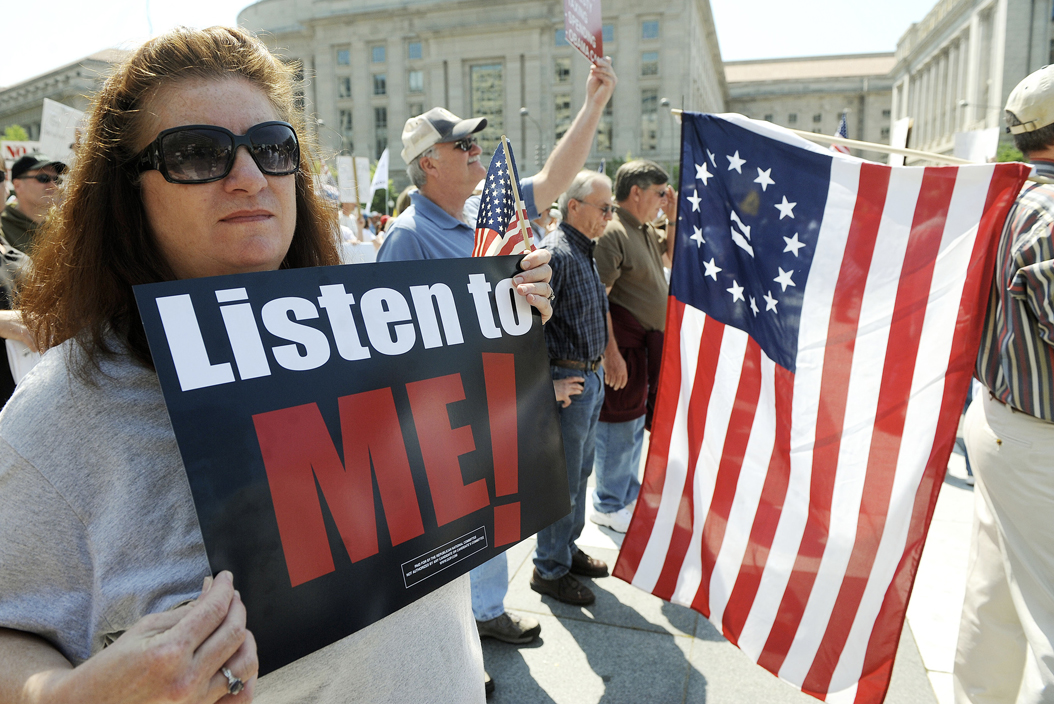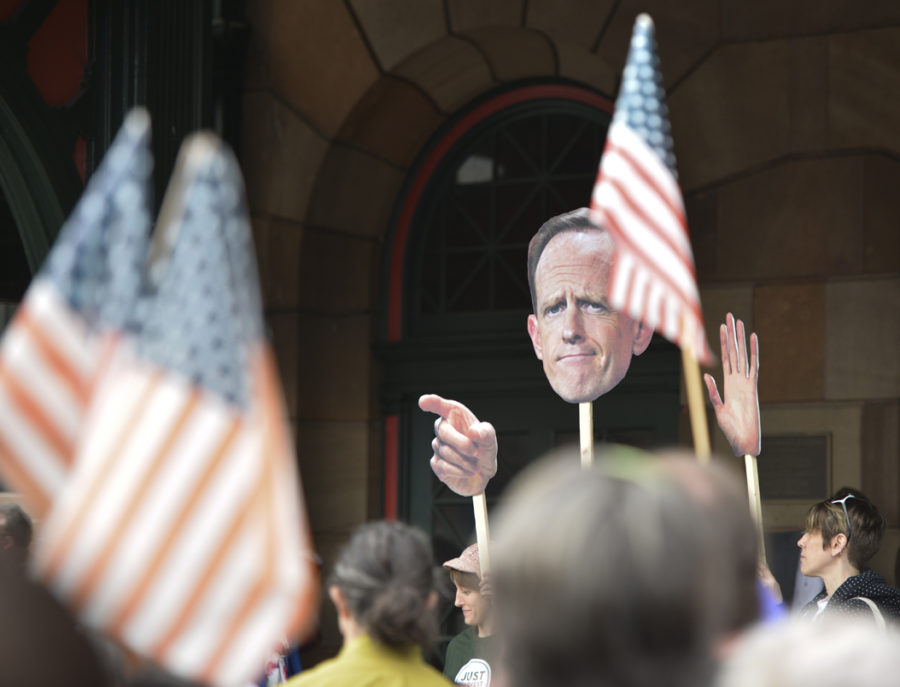As the Donald Trump presidency continues along its rocky path, more and more Republicans in Congress seem to be fighting losing battles on their home field.
Town hall meetings between Congressional Republicans and constituents in their districts over the past few weeks have been the stage for increasingly dramatic confrontations. And for Republicans who came into power on the back of the Tea Party movement, the last several days must feel eerily familiar.
In the wake of former-President Barack Obama’s first election at the end of 2008, Conservatives used the town hall format to resist Democratic control of the executive and legislative branches to much success. Rowdy protesters rattled Democrats like former-Sen. Arlen Specter, D-Pa., who dared host town halls during the Affordable Care Act ratification process in August 2009. In the other party, Republicans like Sen. Chuck Grassley, R-Iowa, took advantage of the town hall format to spread misleading information about the death panels that Obamacare would allegedly put in place.

The protests later came to be associated with the nascent Tea Party and were a key element to massive Republican electoral victories in 2010 and 2014. So if the GOP has learned anything from its own rise to power, it should be that ignoring upset voters is a recipe for disaster. But so far, that hasn’t seemed to be the case.
Sen. Mitch McConnell, R-Ky., uncomfortably grinned through an angry denunciation Monday from a woman in his district criticizing his support for repealing the ACA. Rep. Jason Chaffetz, R-Utah, complained yesterday that the constituents he met at a town hall in his district were trying to “bully and intimidate” him by asking him to investigate potential ethics violations committed by the Trump administration.
It’s gotten to the point where Republican members of Congress have begun to avoid meeting with constituents altogether, and southwestern Pennsylvania Republicans are no exception. Despite massive popular demand for one, Sen. Pat Toomey, R-Pa., has yet to host a town hall for his constituents to voice their concerns about the Trump administration’s actions. An abrupt no-show from Rep. Tim Murphy, R-Pa., at an event scheduled for Monday at Duquesne University to discuss mental health legislation left constituents who had been hoping to discuss health policy disappointed.
Defending his decision to KDKA, Murphy claimed he was expecting paid organizers to “crash” the event. He suggested, contrary to statements from a Duquesne spokeswoman, that protesters would present a security issue.
Murphy’s rationalizing avoiding his constituents in this way fits in perfectly with reactions from the rest of his party — on Twitter, Trump dismissed the avalanche of opponents at Republican-hosted town halls as “so-called angry crowds” that had been “planned out by liberal activists.”
It’s unclear whether Trump and other Republicans actually believe the opposition is planting angry citizens at town halls from coast to coast. A more likely explanation is that Republicans in Congress who are using this as an excuse to skip out on town halls simply want to avoid being forced to answer uncomfortable questions or being held accountable for their political positions.
Either way, taking this line doesn’t seem to be helping make these people disappear. And the approach almost exactly mirrors the approach the Obama administration took in 2009 toward the nascent Tea Party — Obama press secretary Robert Gibbs memorably dismissed the movement’s protesters as reflecting “manufactured anger.”
Trump and his party in Congress could take heed of the rising sentiment against the extreme elements of their platform. But if the GOP wants to blithely dismiss the sincere feelings of voting Americans across the country, they should look ahead to 2018 with more anxiety than hope.



